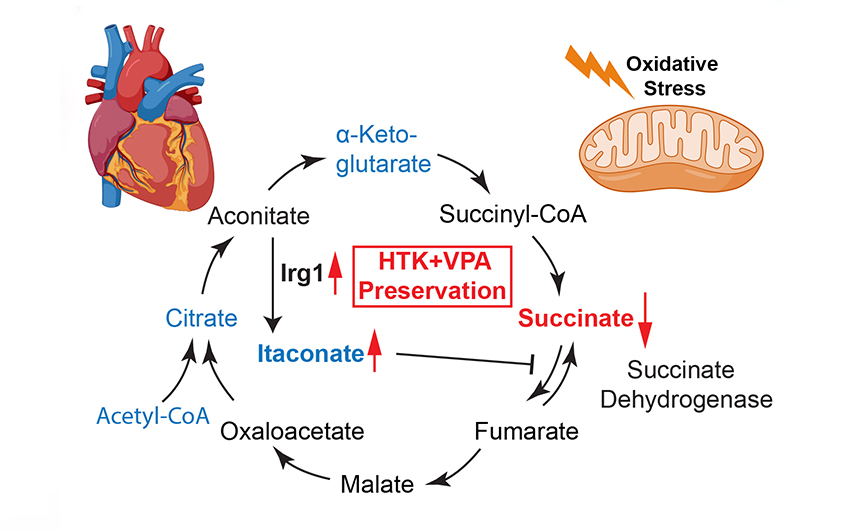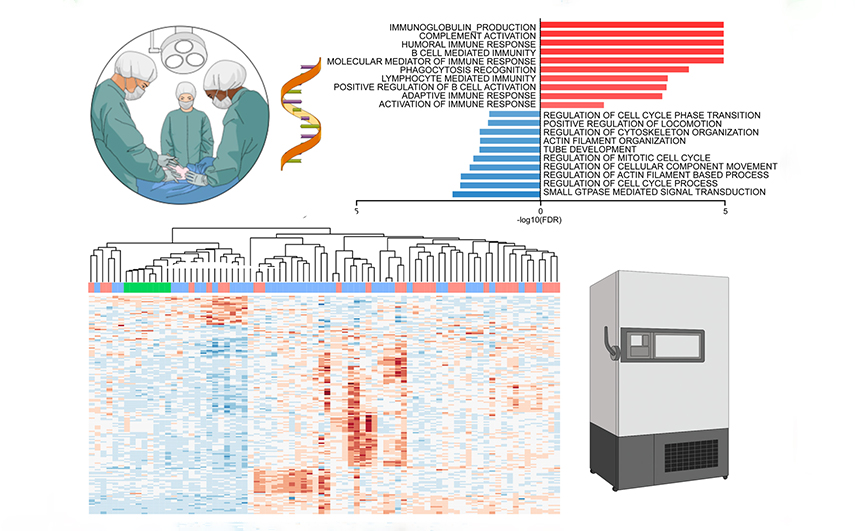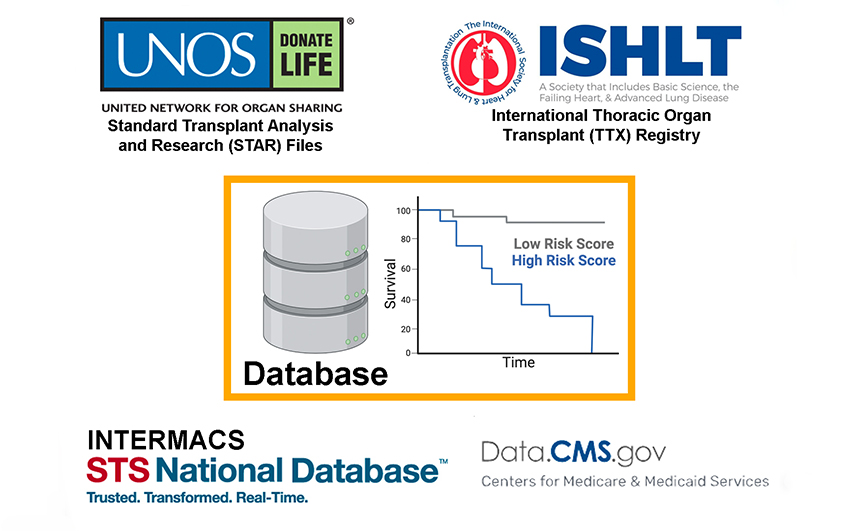Research and publications
The Heart Failure and Transplantation Lab conducts translational science and clinical outcomes research on heart failure and related conditions. We have several ongoing research projects, and we publish our findings in numerous research journals.
Project 1: Metabolic reprogramming of donor hearts improves function
Cardioprotection

This illustration shows how therapeutics that promote intrinsic protective mechanisms can improve cardioprotection.
Harmful metabolic processes are well underway during cold preservation of donor hearts. We discovered a method to increase the expression of beneficial enzymes that help produce anti-inflammatory metabolites. This method helps lower oxidative stress and myocardial injury, which results in better cardiac function after transplant. Future strategies to reduce primary graft dysfunction could involve precise modulation of these cardiac metabolic pathways.
Related publications
Project 2: Cold preservation induces changes in the physical attributes of molecular interactions in donor hearts
Molecular phase separation

This illustration depicts how molecular phase separation is important for determining organ preservation quality.
Hypothermic preservation is often seen as pressing the pause button on molecular processes in donor organs, with transplantation then reanimating the organ where it left off. Research from our group sheds light on how the cold preservation process itself hinders a range of molecular interactions. These mechanisms contribute to impaired donor heart function after transplant.
Related video
Watch this video showing phase separation of molecules into condensates with fluorescence recovery after photobleaching.
Fluorescence Recovery Indicating Molecular Phase Separation
Project 3: Valve diseases affect LVAD outcomes
Valve pathologies

This illustration shows how correction of valve pathologies is likely important for LVAD outcomes.
Valve diseases such as aortic and mitral valve regurgitation can influence the short-term and long-term outcomes of left ventricular assist device (LVAD) therapy. The presence of significant valve regurgitation can reduce the benefits of mechanical circulatory support and harm right heart function. Our team generates new knowledge about the interplay between valve function and circulatory support with LVADs. This helps us better manage ventricular assist device therapy.
Related publications
Project 4: Precision health approach predicts outcomes in heart failure
Metabolomic composition

This image shows how defining individual genomic, proteomic and metabolomic composition can help determine optimal heart failure therapies.
Our biobank houses hundreds of myocardial and serum samples from both people with heart failure and with regular heart function. This biobank has enabled us to perform omics-guided molecular phenotyping in end-stage heart failure. Our analysis revealed specific molecular signatures that can help predict outcomes from LVADs and other treatment. Mitral regurgitation resolution, for example, is predicted by expression of a specific pre-LVAD myocardial transcriptome.
Related publications
Project 5: Big data analysis of multi-institutional clinical registries
Database use

This illustration shows how examining large national and international databases sheds light on important management issues in heart failure.
We're using databases to discover answers for important management issues in heart failure. Data on tens of thousands of people in national and international registries allow us to harness machine learning and other advanced statistical techniques to address knowledge gaps in conditions related to heart failure. Our lab conducts detailed data analyses, and we also work closely with statisticians to gain additional insights.
Related publications
Current funding
Project: Targeting Mineralocorticoid Receptor Condensates to Optimize Donor Heart Preservation. This project investigates the role of phase separation of steroid receptors in determining organ preservation quality.
Principal investigator: Paul C. Tang, M.D., Ph.D.
Award: R01 (HL166140); 12/1/2022-11/30/2026
Project: Targeting Immune-Responsive Gene 1 (Irg1) and Itaconate for Cardioprotection of the Donor Hearts for Transplantation. This project uses metabolic reprogramming of donor hearts to improve cardiac performance and ischemic tolerance.
Principal investigator: Paul C. Tang, M.D., Ph.D.
Award: R01 (HL164416); 7/1/2022 -6/30/2027